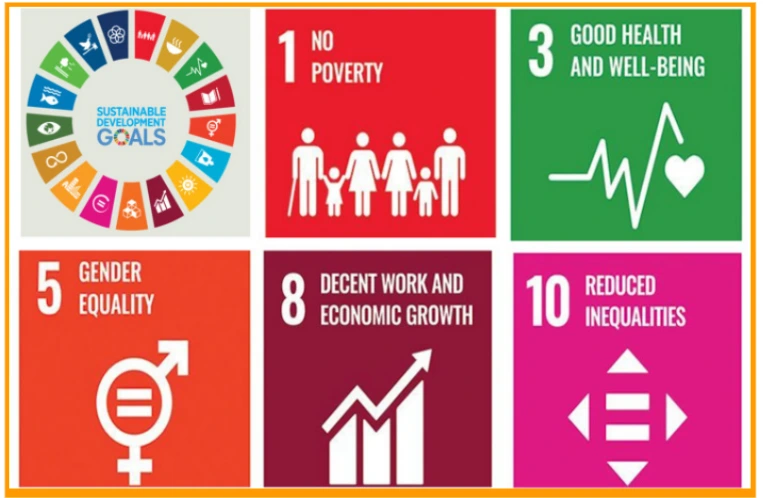Context:
The Lancet Commission on Global Cancer Surgery noted that surgery is central to national cancer control plans.
In contrast, India’s new guidelines on non-communicable diseases (2023) that focus on cancer heavily have a sparse mention of surgery.
Advancing Health Equity through Access and Inclusivity in Low- and Middle-Income Countries
- Global surgery is the study and practice of improving access to timely, quality, and affordable surgical care.
- It is an essential component of global health.
- SOTA: These “surgeries” include essential and emergency surgeries such as surgery, obstetrics, trauma, and anesthesia (SOTA).
What is Global Health?
- Global health is an area of research and practice that seeks to improve health and achieve health equity for all worldwide.
Global surgery & Sustainable Development Goals 2030
- Global surgery specifically contributes to achievement of the following Sustainable Development Goals 2030 (SDGs)

|
- Predominant Focus: On low- and middle-income countries (LMICs).
- It also prioritizes access disparities and under-served populations in high-income countries (HICs).
The Case of South Asia: Navigating Inequities, Disease Burdens, and Economic Impact
- Inaccessibility: Of the five billion people, over 1.6 billion people lack access to live in South Asia, which means over 98% of its population lack access to safe and affordable SOTA care.
- Disease Burden: South Asia had a higher DALY rate than the LMIC average.
- South Asia contributed 50.46%, 32.49%, 26.67%, and 33.35% of the surgically avertable burden of neonatal and maternal diseases, congenital anomalies, digestive conditions, and injuries respectively.
- Economic Burden: South Asia contributes to about 7% of the global lost welfare.
- Steps Taken: In India, the Pradhan Mantri Jan Arogya Yojana has provided millions of surgeries at zero or negligible cost to the bottom 40% of Indians. Pakistan has formulated a National Surgical Care Vision and Nepal has initiated an NSOAP.
|
- World Health Organization Declaration on Safe Surgery (WHO Resolution 68.15): The LCoGS paved the way for the passage of the WHO Resolution 68.15.
- It recognized the impossibility of universal health coverage without the required commitment to emergency and essential surgical systems.
- 2015: This year can be considered the “Annus Mirabilis” or the miracle year for global surgery as it proved to be an inflection point in recognising the importance of surgical care on a global scale.
Challenges Associated With Global Surgery: Access Barriers, Mortality Burdens, and Policy Neglect for Sustainable Health Impact
- Inaccessibility: As per the Lancet Commission on Global Surgery (LCoGS), five billion people or over 70% of the global population lack timely access to safe and affordable surgical care when needed.
- 99% and 96% of the people in low- and lower-middle-income countries (LLMICs) respectively, face access gaps compared to 24% in high-income countries (HICs). Disease Burden: In 2010, around 17 million deaths were attributed to surgically treatable conditions.
- As per the Global Surg Collaborative, perioperative mortality is the third most common cause of death and it is partly due to the lack of timely care, unsafe surgeries and limited capacity of surgical systems.
- As per the DCPN, LMICs have over 77 million surgically avertable Disability-Adjusted Life-Years (DALY) that form 3.5% of the total disease burden in these countries.
- Economic Burden: The approximate loss to GDP due to the absence of scale-up of surgical care is $20.7 trillion (in purchasing power parity terms) across 128 countries by 2030.
- The annual loss in societal welfare was about $14.5 trillion for 175 countries.
- Neglect of Surgery in Policy-making: An analysis of National Health Strategic Plans from 43 African countries noted that 19% did not mention surgery.
- An analysis of 70+ years of policymaking in India also has limited attention to surgery.
- A bibliometric analysis reveals that in 2022, there were only 315 ‘global surgery’ titles (1.5%) in the Pubmed database compared to 21,453 ‘global health’ titles.
- Neglected Funding: As per Developmental Assistance for Health (DAH), contributions to trauma care are <$1 per DALY compared to $41 per DALY for HIV or $25 for tuberculosis.
Conclusion:
- Surgery is an integral, indivisible component of a properly functioning health system, and all people should have access to safe, high-quality surgical and anesthesia care with financial protection when needed. The challenges in global surgery are difficult but solvable.
- Research and innovation, policy focus, and sustained financing are key to solving global surgery challenges.
News Source: The Hindu
![]() 15 Jan 2024
15 Jan 2024